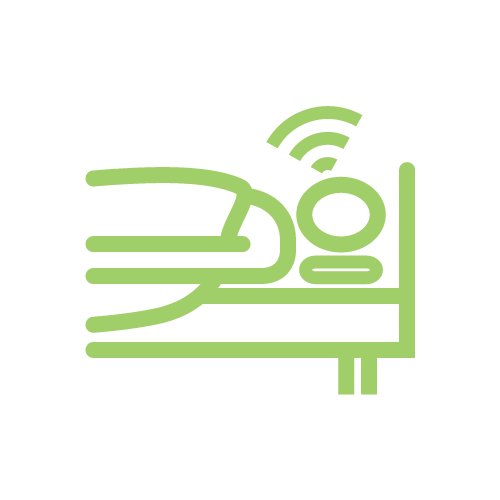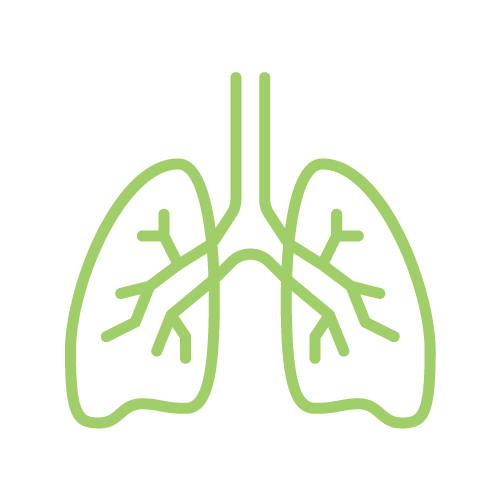Information about obesity, commonly associated conditions and bariatric surgery options. Our board-certified physicians in New Jersey are committed to your success.

Facts About Obesity
What is obesity?
Affecting more than 650 million adults worldwide, obesity is one of the most common health conditions in the world. A more severe form of obesity is called morbid obesity. Obesity is defined by having a body mass index (BMI) of 30 or higher. According to the National Institutes of Health (NIH), more than 70 percent of the adult population is overweight or obese. An estimated 15.5 million are considered morbidly obese.
Obesity results from excessive accumulation of fat that exceeds the body’s skeletal and physical standards. Obesity is emerging as a health pandemic around the world. According to the Centers for Disease Control and Prevention, obesity is rapidly spreading across all regions and demographic groups. Due in part to obesity, life expectancy in the United States has actually decreased.
Contributing Factors To Obesity
There are many conditions that contribute to the development of obesity, including:
- Genetic/hereditary makeup: over 50 genes have been identified as playing a role in the development of obesity, though heredity and no one gene can predict or determine whether a person will become obese
- Environmental factors: in conjunction with genes, environment can be a risk factor for obesity, and includes such factors as:
- Physical activity and access to physical activity
- Food rich environments that lack nutritive value
- Socioeconomic status
- Location of residence
- Behavior and attitude of family and close friends regarding food and physical activity
- Metabolism: a high metabolic rate burns calories much faster than a slow metabolic rate, which may contribute to weight gain
- Eating disorders: although eating disorders may be a risk factor for obesity, they need to be treated as a separate condition, as any obesity treatment will not address the underlying psychological causes of an eating disorder
Other medical conditions: some medical conditions, such as thyroid diseases, can influence the development of obesity and need to be ruled out before any bariatric options are explored
Calculate Your BMI
What Is Morbid Obesity?
Morbid obesity is typically defined as being 100 lbs or more over ideal body weight or having a body mass index (BMI) of 40, or 35 if you have comorbid conditions. It is a chronic disease, meaning that its symptoms build over an extended period of time and do not go away.
Morbid obesity can lead to the development of what are known as “comorbid” conditions. These serious health issues arise directly from the severe degree of obesity. These conditions should be thought of as “symptoms” of the morbid obesity disease, as many can be prevented, cured or greatly improved if the morbid obesity is treated.
What Causes Morbid Obesity?
Decades of research have so far shown there is no single cause of morbid obesity. Rather, there are multiple factors influencing the development of this condition. All of the contributing factors for obesity are the same for morbid obesity. In general, a mix of genetics and environment are the most likely cause, which varies by individual.
Comorbidities: The Health Conditions Caused By Morbid Obesity
Obesity Surgery: A Solution For Reducing Or Eliminating Comorbidities
If you are thinking about bariatric (weight-loss) surgery and are having doubts about whether it is right for you, you’re not alone.
Bariatric surgery is a life-changing procedure. Making the decision requires research, reflection and discussion with your doctor. Research studies have consistently shown that weight-loss surgery can be the most effective treatment for morbid obesity.
If traditional weight-loss methods have not been successful, weight-loss surgery may be right for you. With its effectiveness in resolving or improving conditions such as type 2 diabetes, high blood pressure, arthritis, sleep apnea and more, it may improve the overall quality of your life.
If traditional weight-loss methods have not worked, weight-loss surgery may be the right answer for you. And with its effectiveness in resolving or improving conditions such as type 2 diabetes, high blood pressure, arthritis, sleep apnea, and others, it may improve the quality of your life.
Almost everyone has had at one point or another concerns and fears during the bariatric surgery decision-making process. By browsing these web pages and hearing our patients describe their experiences in their own words, you’ll find that you’re not alone.
The majority of people who consider bariatric surgery do so after years of unsuccessful dieting attempts, including participation in diet programs, taking weight-loss medications, and exercising. After years of losing weight and gaining it back, it is not unusual to blame yourself. This vicious cycle of weight loss and regain leaves many patients feeling demoralized and like failures. While this is the unfortunate nature of morbid obesity, this cycle can be broken.
Break the Cycle
The majority of people who consider bariatric surgery do so after years of unsuccessful dieting attempts, participation in diet programs, taking weight-loss medications and exercising. After years of repeatedly losing weight and gaining it back, blaming oneself is common. The cycle of weight loss and gain may leave many patients feeling frustrated and even demoralized.
Morbid obesity is a disease requiring lifelong treatment. Weight-loss surgery is a treatment option that alters the anatomy and physiology, allowing for significant weight loss and the reversal or improvement of comorbid conditions. As with any surgery, bariatric surgery has risk of complications, and these should be discussed with your bariatric surgeon.
Successful weight-loss surgery patients use surgery as a powerful tool to help control their hunger. Along with exercise, a healthy diet and other lifestyle changes, weight-loss surgery can help patients attain their goals of health and wellness and improve their quality of life. For more information or to schedule an appointment, please call Advanced Laparoscopic Associates in Paramus, New Jersey today!
Call (201) 646-1121 today and schedule your consultation with one of our surgeons!
Or use our online Request an Appointment form.










